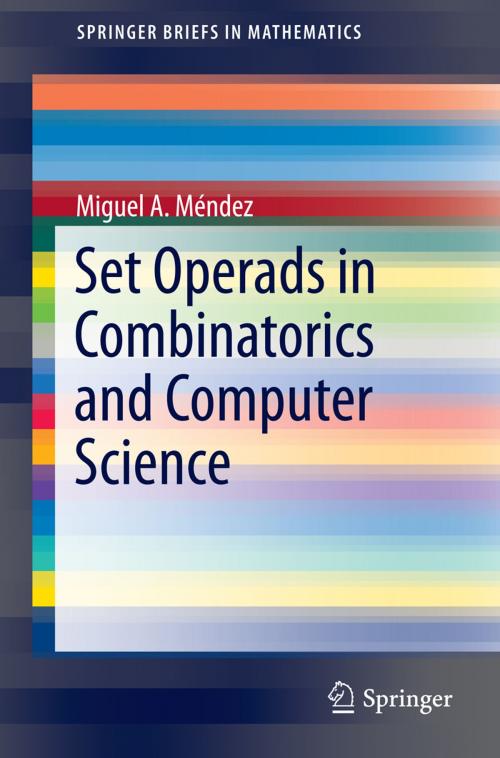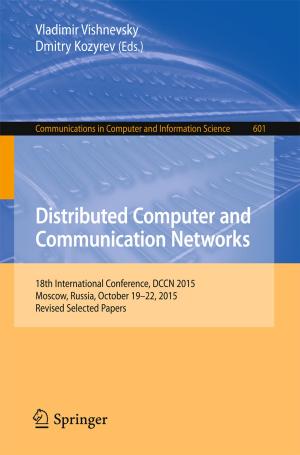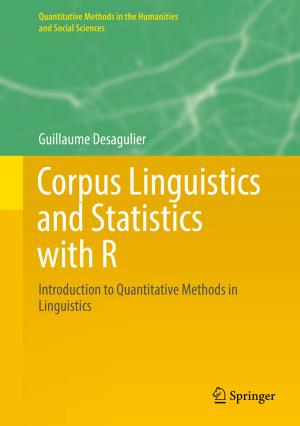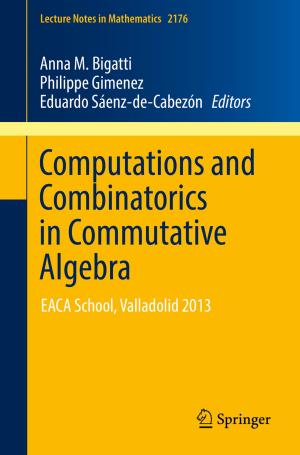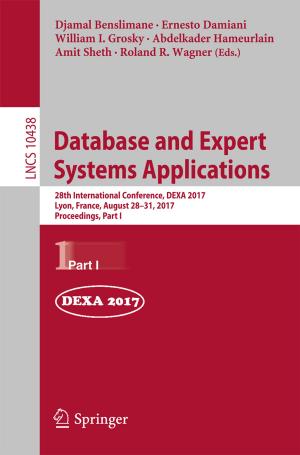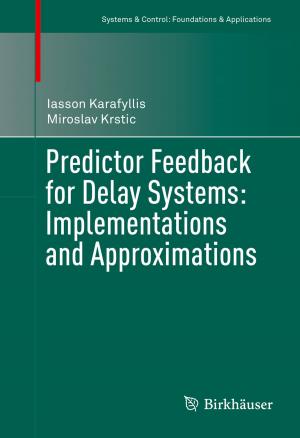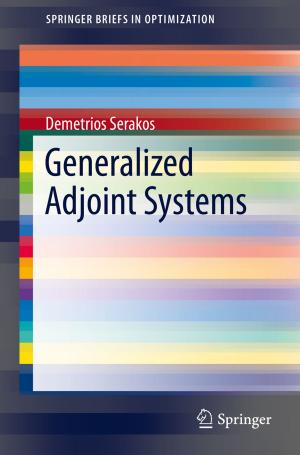Set Operads in Combinatorics and Computer Science
Nonfiction, Science & Nature, Mathematics, Mathematical Analysis, Applied| Author: | Miguel A. Méndez | ISBN: | 9783319117133 |
| Publisher: | Springer International Publishing | Publication: | January 8, 2015 |
| Imprint: | Springer | Language: | English |
| Author: | Miguel A. Méndez |
| ISBN: | 9783319117133 |
| Publisher: | Springer International Publishing |
| Publication: | January 8, 2015 |
| Imprint: | Springer |
| Language: | English |
This monograph has two main objectives. The first one is to give a self-contained exposition of the relevant facts about set operads, in the context of combinatorial species and its operations. This approach has various advantages: one of them is that the definition of combinatorial operations on species, product, sum, substitution and derivative, are simple and natural. They were designed as the set theoretical counterparts of the homonym operations on exponential generating functions, giving an immediate insight on the combinatorial meaning of them. The second objective is more ambitious. Before formulating it, authors present a brief historic account on the sources of decomposition theory. For more than forty years decompositions of discrete structures have been studied in different branches of discrete mathematics: combinatorial optimization, network and graph theory, switching design or boolean functions, simple multi-person games and clutters, etc.
This monograph has two main objectives. The first one is to give a self-contained exposition of the relevant facts about set operads, in the context of combinatorial species and its operations. This approach has various advantages: one of them is that the definition of combinatorial operations on species, product, sum, substitution and derivative, are simple and natural. They were designed as the set theoretical counterparts of the homonym operations on exponential generating functions, giving an immediate insight on the combinatorial meaning of them. The second objective is more ambitious. Before formulating it, authors present a brief historic account on the sources of decomposition theory. For more than forty years decompositions of discrete structures have been studied in different branches of discrete mathematics: combinatorial optimization, network and graph theory, switching design or boolean functions, simple multi-person games and clutters, etc.
